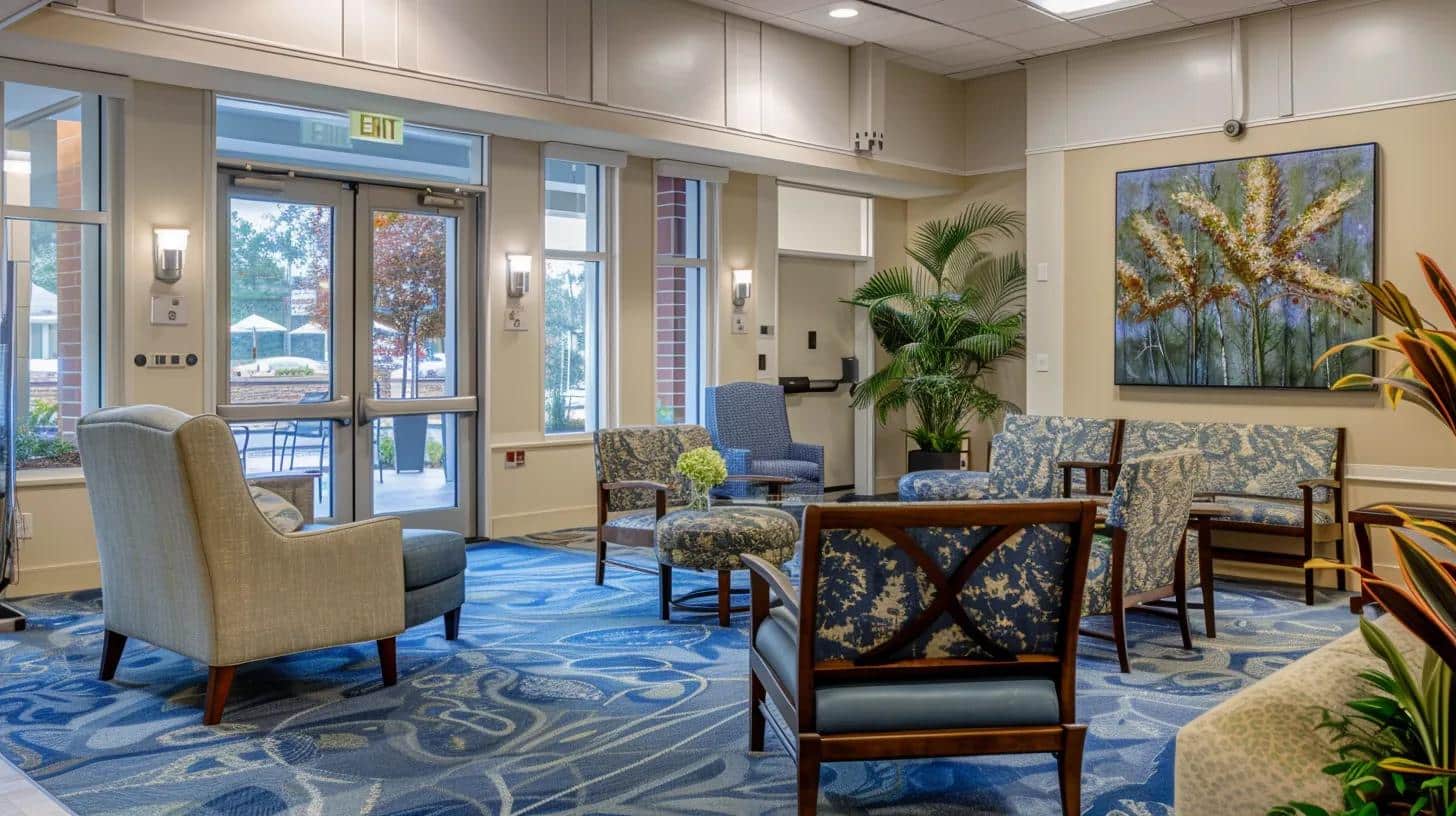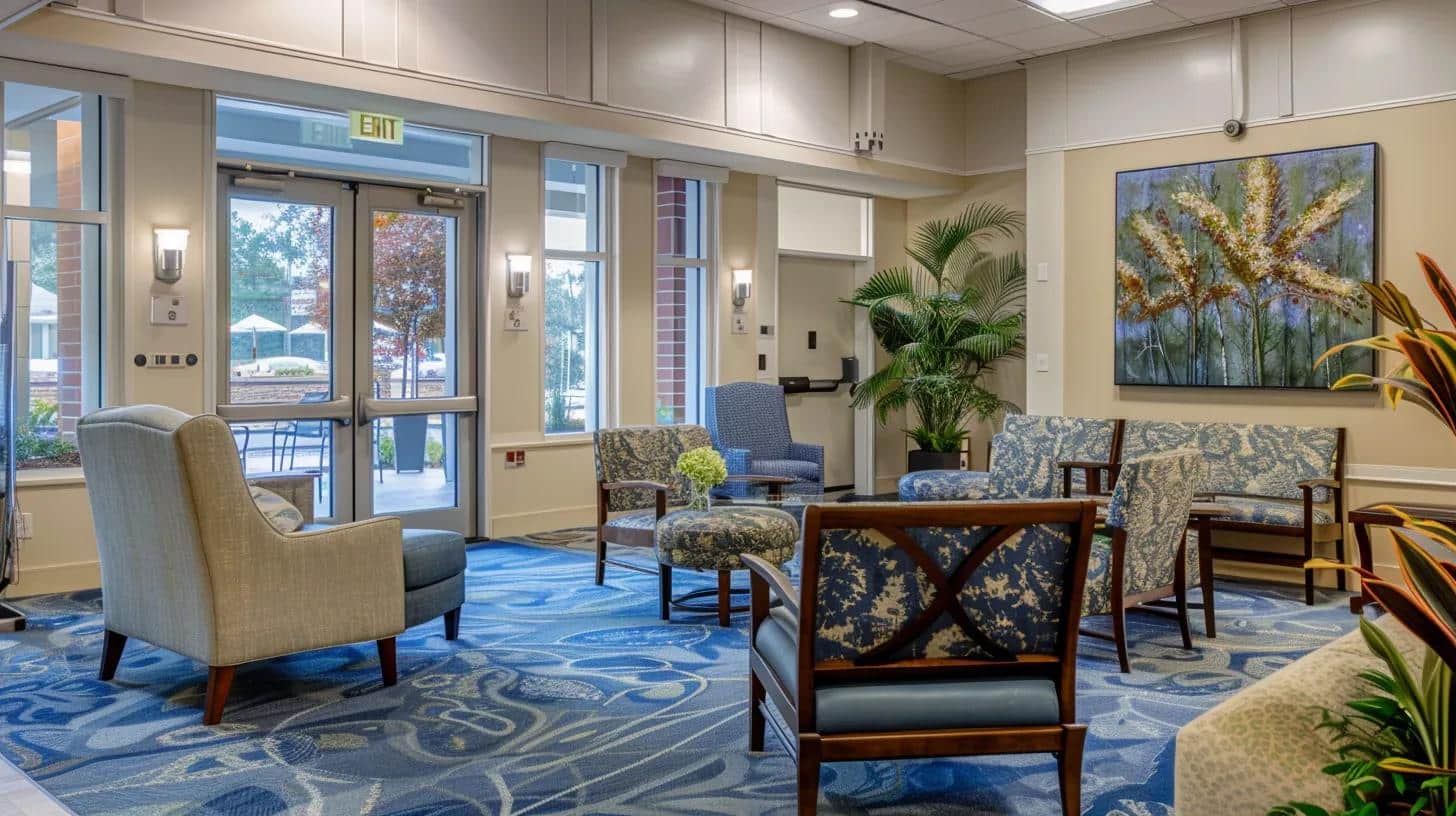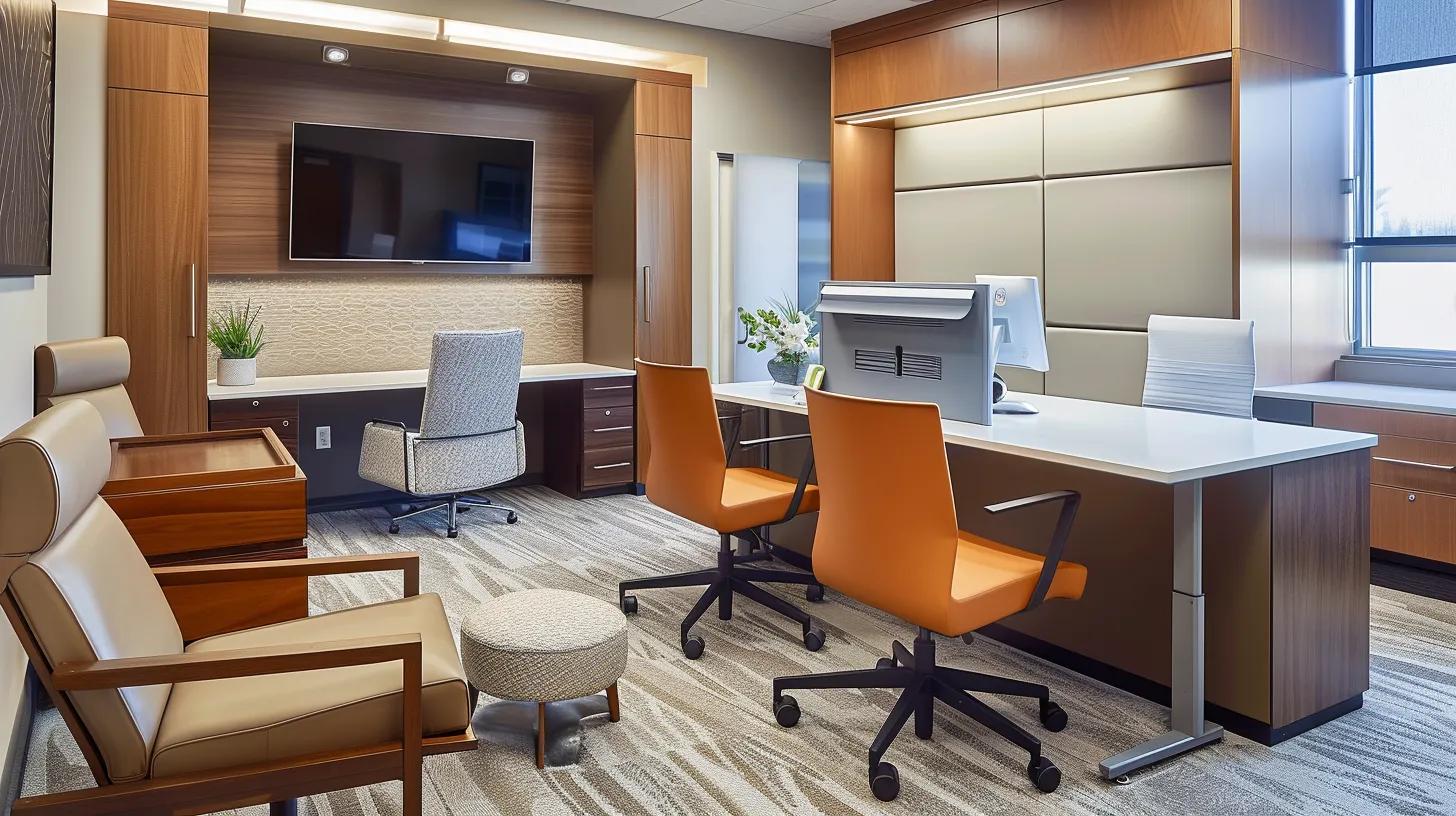Your guide to assisted living Michigan: explore costs, services, financial aid, and top communities for senior care.

The Role of Memory Care in Alzheimer’s Support
The Role of Memory Care in Alzheimer’s Support

Memory Lane Michigan Memory Care: Alzheimer’s & Dementia Support
Memory care facilities provide specialized long-term living environments for seniors with Alzheimer’s or dementia. These facilities prioritize safety, individualized care, and tailored therapies that address residents’ cognitive, physical, and emotional needs. With rising rates of dementia and Alzheimer’s, families and healthcare professionals seek solutions that combine clinical quality with a home-like atmosphere. This article discusses what memory care encompasses, who benefits, the core services offered, facility design, specialized programs, staff training, differences from other senior living options, financial considerations, and family support during transitions.
In the following sections, experts explain the philosophy behind memory care, detail the services provided, and describe how design and programming improve outcomes. Guidance on financial planning and family transitions is also provided to help families and professionals ensure safety, dignity, and improved cognitive function for those living with dementia.
Table Of Contents:
- Memory Care: Specialized Support for People With Alzheimer’s or Dementia
- Defining What Memory Care Encompasses
- Identifying Who Benefits Most From Memory Care Services
- Core Services Typically Offered in Memory Care Settings
- The Unique Environment and Design of Memory Care Facilities
- Specialized Programs and Therapies in Memory Care
- The Role and Training of Staff in Memory Care
- Distinguishing Memory Care From Other Senior Living Options
- Financial Considerations for Memory Care Services
- Supporting a Loved One’s Transition and Life in Memory Care
- Table: Comparative Overview of Memory Care Services
- List: Key Benefits of Memory Care Services
- Frequently Asked Questions
- Final Thoughts
Defining What Memory Care Encompasses
Memory care is a type of long-term care designed specifically for individuals with Alzheimer’s disease and dementia. It is based on a philosophy that emphasizes a safe, supportive environment addressing the unique cognitive and behavioral challenges these residents face. Treatment plans combine clinical methods with compassionate care to maintain or even improve quality of life.
Understanding the Core Philosophy of Memory Care
Memory care philosophy balances clinical expertise with a home-like setting. The model focuses on enhancing quality of life with personalized attention, therapeutic activities, and specialized support for cognitive decline. Facilities structure daily routines to reduce anxiety, slow deterioration, and promote social interaction; routines offer predictability and lessen confusion. This approach is built on decades of research and continually adapts as new studies support the benefits of structured routines, cognitive exercises, and sensory therapies.
How Memory Care Addresses Alzheimer’s and Dementia Specifically
Memory care programs offer interventions that manage memory loss, cognitive decline, and behavioral issues. They incorporate evidence-based practices such as reminiscence and music therapy to stimulate memory recall. Safety protocols and environmental modifications help prevent risks like wandering, while regular health monitoring, medication management, and psychological support keep residents stable. Well-designed memory care environments can slow symptom progression and promote a sense of autonomy.
The Primary Goals of Providing Memory Care Services
The main goals are to ensure resident safety, preserve dignity, and maximize cognitive function. Individualized care plans consider physical, emotional, and social needs. By continuously assessing risk and progress, caregivers adjust interventions to maintain function and improve quality of life. Structured routines and targeted cognitive exercises reduce aggressive behaviors and enhance emotional stability.
What Is Memory Care in the Context of Long-Term Senior Living
Memory care is a subset of senior living designed for residents with significant cognitive impairments. Unlike standard assisted living, memory care units feature secure environments and specialized care teams skilled in managing dementia-related behaviors. They integrate clinical care with everyday activities to provide both therapeutic benefits and robust safety measures, making them essential as the population ages.
Identifying Who Benefits Most From Memory Care Services

Memory care is most beneficial for individuals with moderate to advanced Alzheimer’s or dementia. These settings are tailored to meet complex cognitive needs, ensuring safety, enhancing cognitive function, and offering emotional support that standard arrangements may not provide.
Recognizing Cognitive Conditions Suited for Memory Care
Memory care is ideal for residents diagnosed with Alzheimer’s, vascular dementia, Lewy body dementia, and other progressive disorders characterized by memory loss, communication difficulties, and impaired judgment. Facilities use high staff-to-resident ratios and specialized care routines to reduce disorientation and address issues like confusion and agitation.
Assessing When an Individual With Alzheimer’s Needs This Support
Deciding on memory care involves evaluating cognitive and behavioral changes. Signs such as frequent wandering, difficulty with daily tasks, heightened anxiety, or disruptions in behavior indicate that a safer, more stimulating environment may be needed. Regular cognitive assessments and behavioral observations help determine the appropriate level of care.
How Dementia Progression Influences the Need for Specialized Care
As dementia advances, independent living becomes increasingly challenging. Early stages may be managed at home, but rapid progression can lead to unsafe situations when individuals forget safety protocols. In advanced stages, memory care becomes essential to manage wandering, ensure accurate medication dosing, and provide continual supervision.
Benefits for Individuals Exhibiting Specific Dementia-Related Behaviors
Residents who display wandering, agitation, or aggression benefit from memory care’s behavior management strategies. Techniques such as soothing music, structured activities, and constant supervision help reduce incidents and provide rapid intervention during episodes of confusion, ultimately decreasing the risk of injury.
Core Services Typically Offered in Memory Care Settings
Memory care facilities offer a range of services that address the complex needs of individuals with dementia, going beyond basic health monitoring. The comprehensive care model integrates physical therapy, nutritional support, and social engagement.
Twenty-Four Hour Supervision and Personal Assistance
Continuous supervision is a cornerstone of memory care. With high staff-to-resident ratios, caregivers are available around the clock to assist with daily tasks such as bathing, dressing, and mobility. This constant presence reduces anxiety, prevents accidents, and builds trust.
Medication Management and Health Monitoring Protocols
Residents in memory care often require complex medication regimens. Staff ensure proper administration, monitor for side effects, and adjust dosages as needed. Regular protocols—such as blood pressure checks, weight monitoring, and routine lab tests—help maintain overall health and give families peace of mind.
Tailored Dining Experiences and Nutritional Support
Good nutrition is vital for cognitive and physical health. Memory care facilities design customized dining programs that meet personal dietary needs and preferences. Nutrition experts create menus that support mental clarity and physical well-being, and assistance during meals helps residents maintain proper nutrition.
Assistance With Activities of Daily Living (ADLs)
Support with daily living activities is essential for maintaining independence. Memory care staff help with personal hygiene, grooming, medication adherence, and mobility. Consistent schedules reduce anxiety and improve behavioral outcomes by providing predictable structure.
Coordination With Broader Healthcare Services
Memory care facilities act as integrated health hubs. They coordinate on-site care with visits from physicians, physical and occupational therapists, and mental health counselors. Collaboration with local hospitals and clinics ensures timely interventions during emergencies, resulting in better overall care.
The Unique Environment and Design of Memory Care Facilities

The design of memory care facilities is crucial to ensuring a safe and stimulating environment. Both the physical layout and aesthetic elements are carefully planned to reduce confusion, discourage wandering, and promote calm.
Safety and Security Features to Prevent Wandering
Preventing wandering is a primary design objective. Facilities incorporate secure entry and exit points, monitored outdoor areas, and electronic tracking systems. Alarm systems and visual cues—like distinct color schemes and clear signage—help residents orient themselves and stay safe.
Creating a Dementia-Friendly and Calming Atmosphere
A calming atmosphere reduces anxiety and agitation. Memory care facilities use soft lighting, warm colors, and comfortable furnishings to create a home-like environment. Natural materials, indoor plants, and well-designed acoustic features further enhance this calming effect.
Secure Indoor and Outdoor Spaces for Resident Well-Being
Both indoor and outdoor spaces are designed for safety and stimulation. Secure gardens, walking paths, and sensory areas provide residents with access to nature and physical activity while ensuring they remain under supervision. Such environments have been linked to improved mood and reduced depression.
Use of Visual Cues and Familiar Layouts
Consistent floor plans and recognizable visual markers help residents navigate the facility. Personal touches, such as displaying photographs or familiar objects, support memory recall and create a sense of belonging. These cues reduce anxiety and facilitate smoother transitions within the environment.
How Physical Design Supports Cognitive Function
The overall design supports cognitive function by balancing independence with necessary supervision. Features such as low-maintenance corridors, tactile surfaces, and accessible common areas provide a structured yet comforting environment. Continuous evaluations ensure that the design meets residents’ evolving needs.
Specialized Programs and Therapies in Memory Care
Memory care programs offer a variety of therapies and activities designed to support brain health and overall quality of life. These programs are tailored to address each resident’s physical, cognitive, and emotional needs.
Cognitive Stimulation Activities and Their Impact
Activities like puzzles, memory games, and guided discussions help enhance brain function and slow cognitive decline. Both group and individual sessions are used to boost mental agility and foster social interaction, which is critical for maintaining cognitive function.
Music, Art, and Other Sensory Therapies
Therapies such as music and art therapy are widely used to reduce anxiety and depression. Listening to familiar music can evoke positive memories, while art therapy encourages creative expression and improved communication. These sensory interventions help residents experience moments of joy and emotional relief.
Physical Activities Adapted for Memory Care Residents
Exercise is integrated into daily routines through gentle stretching, chair yoga, walking groups, or dance sessions. Regular physical activity supports cardiovascular health, reduces stress, and improves balance. Adapted routines also contribute to a stable daily schedule.
Social Engagement and Community Building Programs
Social interaction is a key predictor of quality of life. Memory care facilities organize group outings, themed events, and interactive workshops to build community and reduce isolation. Such programs benefit both residents and their families by fostering a supportive social network.
How Structured Routines Benefit Residents
Predictable daily schedules reduce anxiety and confusion. Routines that include set times for meals, personal care, recreational activities, and rest provide clarity and contribute to improved physical and cognitive health. Residents benefit from the stability provided by these structured patterns.
The Role and Training of Staff in Memory Care

The success of memory care facilities depends on the specialized training and compassion of the staff. Caregivers must address both the clinical and emotional needs of residents with dementia.
Specialized Training for Dementia and Alzheimer’s Care
Staff receive in-depth training in dementia-specific communication, de-escalation techniques, and behavioral management. This specialized education enables them to recognize early signs of distress and respond effectively. Ongoing certifications and in-service training help maintain high standards of care.
Understanding and Managing Challenging Behaviors
Memory care staff are skilled in managing challenging behaviors such as aggression or wandering through empathetic communication and non-pharmacological interventions. Techniques like validation therapy and structured redirection help reduce crises and ensure a calm environment.
The Importance of a High Staff-to-Resident Ratio
A high caregiver-to-resident ratio enables personalized attention and timely interventions. This approach not only improves clinical outcomes but also enhances overall resident satisfaction and safety, as each resident receives focused care.
Compassionate Communication Techniques With Residents
Effective communication is vital in reducing frustration and building trust. Staff use clear, simple language and a calm tone to validate residents’ feelings and guide them through daily routines. These techniques help de-escalate emotionally charged situations and foster a supportive environment.
Ongoing Professional Development for Caregivers
Regular training updates and interdisciplinary meetings keep caregivers informed about new research and best practices. By continually refining their skills, staff can adopt innovative approaches that improve care quality and better address behavioral challenges.
Distinguishing Memory Care From Other Senior Living Options
Memory care is distinct from other senior living arrangements due to its specialized focus on Alzheimer’s and dementia. Its tailored services and secure environments set it apart.
Memory Care Versus Standard Assisted Living
Unlike assisted living, which offers general support with daily activities, memory care provides 24-hour supervision, specialized therapies, and secure environments designed specifically for cognitive impairments. This focused care leads to better outcomes for residents facing memory issues.
Differences Compared to Skilled Nursing Facilities
While skilled nursing facilities cater to acute medical needs and rehabilitation, memory care centers prioritize cognitive and behavioral support. They provide a more nurturing, home-like environment that addresses daily living challenges rather than solely focusing on medical treatment.
When to Choose Memory Care Over In-Home Care
Memory care is recommended when symptoms such as wandering, significant memory loss, or unpredictable behavior make home care unsafe or insufficient. While in-home care may be suitable in early stages, more advanced conditions require the specialized oversight and resources available in memory care facilities.
Unique Benefits Offered Exclusively by Memory Care
Memory care offers secure living environments, specialized cognitive and sensory programs, and a high ratio of trained caregivers. These benefits help form cohesive communities, improve safety, and foster emotional well-being, leading to measurable improvements in daily functioning.
Financial Considerations for Memory Care Services

Financial planning is crucial when evaluating memory care options. Costs vary depending on location, facility quality, and the level of support provided.
Understanding the General Costs of Memory Care
Memory care is generally more expensive than standard assisted living due to its specialized services. Monthly expenses typically range from $5,000 to $10,000 and cover 24-hour supervision, health monitoring, medication management, and personalized care plans. Families should assess these costs in light of the enhanced safety and quality of life provided.
Factors Influencing the Price of Memory Care
Costs are influenced by factors such as facility location, size, staff training, and the range of services offered. Additional costs may arise for specialized therapies or dietary needs. It is important for families to review detailed cost breakdowns and ask about any potential hidden fees.
Exploring Payment Options and Financial Assistance
Payment methods for memory care include private payment, long-term care insurance, Medicaid, and Veterans Affairs benefits. Many facilities also offer sliding scale fees or financial consultations to help families manage expenses and plan for long-term care.
What Medicare or Insurance May Cover
Generally, Medicare does not cover long-term memory care, though it may cover some acute services during hospitalization. Some private insurance plans, Medicaid, and specialized long-term care insurance policies can help offset costs. Families should review their policies and consult with insurance professionals to understand available benefits.
Supporting a Loved One’s Transition and Life in Memory Care
Transitioning to memory care can be emotionally challenging. Successful transitions require thorough planning, clear communication, and access to supportive resources.
Preparing for the Move to a Memory Care Facility
Families should evaluate the resident’s needs, visit multiple facilities, ask detailed questions about care routines, and meet staff before deciding. Emotional preparation is essential for both residents and family members. Bringing familiar objects and personal mementos can help ease the transition and create a sense of home.
Family Involvement and Communication With Care Staff
Active family participation is crucial in memory care. Regular meetings, updates, and support groups ensure that families remain involved in care decisions and understand the resident’s evolving needs. This collaborative approach benefits both residents and caregivers.
How Memory Care Supports Family Peace of Mind
Knowing that professional caregivers manage daily tasks—from medication to personal care—provides families with reassurance. Continuous communication and transparent care practices help families feel confident that their loved ones are safe and well cared for.
Ensuring Quality of Life and Dignity for Residents
Memory care emphasizes preserving dignity and quality of life through personalized care. Structured routines, engaging activities, and compassionate support ensure that residents maintain their identity and autonomy while receiving necessary care.
Resources and Support Systems for Families
Many facilities offer educational workshops, counseling services, and online resources to help families manage the challenges of dementia care. These support systems provide valuable information on managing behaviors, legal and financial planning, and adapting to new caregiving roles.
Table: Comparative Overview of Memory Care Services

Below is a table summarizing key memory care services and the benefits they provide:
List: Key Benefits of Memory Care Services
1. Enhanced Resident Safety – Continuous supervision minimizes risks and ensures prompt intervention. 2. Improved Cognitive Function – Tailored cognitive activities and structured routines help slow memory decline. 3. Personalized Support – High caregiver-to-resident ratios ensure individualized care and attention. 4. Emotional Stability – Therapeutic programs and social engagement reduce anxiety and depression. 5. Holistic Well-Being – Integrated services such as nutrition, exercise, and sensory therapies enhance overall quality of life.
Frequently Asked Questions
Q: What distinguishes memory care from other senior living options? A: Memory care is dedicated exclusively to seniors with Alzheimer’s or dementia, offering specialized supervision, tailored cognitive activities, and a secure environment that improves quality of life. It focuses on managing cognitive decline through structured routines and dedicated therapies.
Q: How do memory care facilities manage challenging behaviors in residents? A: Facilities train staff in specialized communication and behavior management techniques. Structured routines, calming therapies like music and art, and personalized attention from a high staff-to-resident ratio help reduce agitation and wandering.
Q: What types of therapies are commonly offered in memory care settings? A: Common therapies include cognitive stimulation activities, music therapy, art therapy, and sensory integration programs. These interventions aim to improve memory, reduce anxiety, and stimulate brain function while providing emotional comfort.
Q: Can families be involved in the memory care process? A: Yes, memory care facilities emphasize family involvement. Regular communication, support groups, and guided visits help families stay engaged in care decisions, fostering a collaborative environment that benefits residents.
Q: What financial options are available for covering memory care costs? A: Payment options include private payment plans, long-term care insurance, Medicaid, and Veterans Affairs benefits. Many facilities offer financial consultations and flexible pricing models to help families manage expenses.
Q: How can memory care facilities improve residents’ quality of life? A: Quality of life is enhanced through personalized care plans that include 24-hour supervision, structured routines, tailored nutrition, and engaging therapies. This integrated approach ensures that physical, emotional, and cognitive needs are met, supporting a dignified lifestyle.
Q: What role does environmental design play in enhancing memory care? A: Thoughtful environmental design—including secure layouts, visual cues, familiar décor, and accessible outdoor spaces—supports cognitive function and reduces confusion. It creates a calming atmosphere that is crucial for the well-being of residents.
Memory Care Services Guide: What This Article Covers
Memory care facilities blend clinical expertise with compassionate, individualized support for seniors with Alzheimer’s or dementia. Their specialized services and carefully designed environments improve safety, stabilize cognitive function, and enhance overall quality of life. This comprehensive approach meets the evolving needs of residents while providing families with reassurance and support during challenging times. As research and innovative practices continue to shape memory care, these facilities remain a vital resource for ensuring dignity and care for seniors facing cognitive decline.


